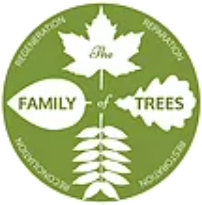For almost a hundred years, people have been buying handmade candy from Widman’s Candy Store in Crookston, MN. People may move from this small town of roughly 7,727 people, but they usually come back for a visit to the candy store. They return for more than just the sugar-laden handmade treats. “They come back for the memories,” said George Widman, the third generation owner.
Local businesses, like Widman’s, are important for building sustainable, local economies and strong communities. For several reasons, local businesses are vital for a community’s health explained Lisa Piper and David Clark, owners of the Fireroast Mountain Café in Minneapolis, MN. Local businesses are community centers where neighbors meet, share news, and discuss ideas. They can be seen as the pulse of a city and the spaces where community evolves.
“There is a synergy between local stores and customers,” elaborated Julie Ingebretsen from Ingebretsen’s Scandinavian Gift Shop in Minneapolis, MN. By shopping at local businesses, customers are helping their community prosper. According to localfirst.com, for every dollar that is spent at a local business, 73 cents stays within the community as opposed to non-local chain stores where only 43 cents stays within the community. The money that stays in the community helps local businesses employ from within the community, support other local businesses, and care for the health of their neighborhood.
Ingebretsen’s Gift Shop is conscious of its neighborhood and respectful of its space because of the interconnectedness between the business and the surrounding community. It is still located on Lake Street, an area that has gone through many economic transitions since Ingebretsen’s opened its doors in 1921. The gift shop supported and participated in a variety of grassroots efforts throughout the years to revitalize the neighborhood and strengthen the local economy. Even at the neighborhood’s roughest point, the owners chose to stay because they felt an obligation to the neighborhood that had helped them succeed. “Why would we leave the area? It’s our neighborhood, too,” Julie explained.
An investment in space and community by a local business is not purely an economic one. It is an emotional one, too. “Most of my customers are my friends,” said George Widman, “I know their names, I know what they like, [and] I know the topics they like to talk about.” More than just friendly service, many locally owned businesses develop personal connections with their customers. The interplay between customers and businesses strengthens community investment at large: locally owned businesses often give back to their communities through a variety of philanthropic gestures, and customers become personally invested in the success of their communities and local stores.
Widman’s and Ingebretsen’s continue to do business like their family members before them: quality products, personal service, and a deep concern for the community. This is an enduring and successful business model. One that Fireroast Mountain Café and many locally owned businesses follow. They put the same care into their community as they do their own store. Whether the business is supplying lefse, coffee, or chocolate covered potato chips, local businesses play a vital role in evolving sustainable and healthy economies, communities, and memories.
Deep Economy by Bill McKibben. Times Publisher 2007.
Widman’s Candy Store Crookston, MN
218-281-1487







